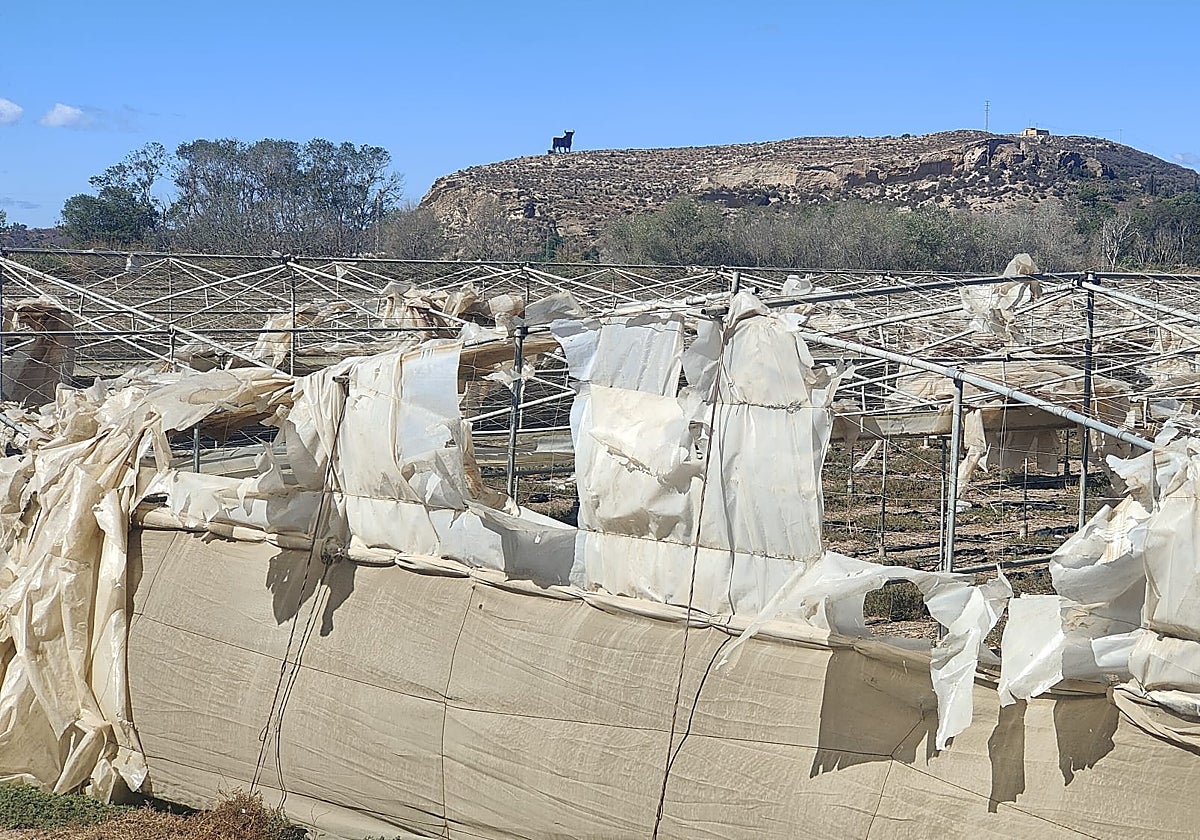Environmentalists warn of abandoned greenhouse that they say is polluting Costa del Sol river
GENA-Ecologistas en Acción have called on Vélez-Málaga town hall to take action to remove construction and agricultural waste dumped at the mouth of the Río Vélez
Environmental action group Gabinete de Estudios de la Naturaleza (GENA)-Ecologistas en Acción has called on Vélez-Málaga town hall on the eastern Costa del Sol to take action to remove construction and agricultural waste from the mouth of the Río Vélez.
In a communication sent to the town hall on Friday 4 October, GENA said that the mouth of the river, which lies to the west of Torre del Mar, is "a place that due to its biological importance should be better controlled by the municipal authorities". The statement went on to say that "rubbish is frequently dumped" and that it should be left "under the N-340 to make it easier and more effective to be collected by the municipal cleaning services"
According to the GENA Axarquía spokesperson, the biologist Rafael Yus, "despite this, we have not yet seen any movement on the part of the municipal cleaning services to clear up this waste present in the aforementioned area". Similarly, as reported by GENA in a statement, "along the Vélez riverbed, upstream to the Camino de Remanantes, every day we can see new rubbish of all kinds dumped, furniture, appliances, packaging and more frequently construction debris".
According to GENA, "another very frequent type of dumping on both banks of the river Vélez, often associated with existing crops in the same area, are agricultural plastics, both clear and black, which are often dragged to the seashore, becoming microplastics due to the waves and wind".
The association added, "for months now, this association has witnessed a large greenhouse next to the Camino de la Culebra, in the delta of the Vélez river, whose plastic cover has been dismantled, but not the architecture of tubes that maintains the structure".
The statement continued: "The plastics are torn by the wind, the pieces are transported to land and sea, constituting an unacceptable source of microplastics, whose composition is mainly low density polyethylene, although we do not rule out that its composition is ethylene vinyl acetate, polyvinyl chloride or even polycarbonate."
'Plasticosis', a new disease
For GENA "these microplastics, once ingested by marine fauna, whether invertebrates, such as crustaceans, or vertebrates, such as fish, cause physiological disorders and premature death, as numerous scientific studies have shown". This is called 'plasticosis', the new disease that threatens humans and animals. "The ingestion of microplastics causes biological damage, in some cases fatal, especially in marine ecosystems," Yus warned.
For all these reasons, the environmental group has brought this information "to the attention of Vélez town hall, denouncing the permanence of the aforementioned abandoned greenhouse, with the aim of demanding that its owner completely remove all traces of plastic and deposit them in the plastic dump that is usually used or, failing that, in the clean point of Vélez-Málaga".
Vélez-Málaga's environment councillor Rocío Ruiz has told SUR that she has addressed the complaint made by GENA. She said that "we are working on this problem. We have already carried out several clean-ups in the area and we have more actions scheduled for the beginning of next week".
Ruiz also emphasised the importance of public awareness: "We call on everyone to take responsibility so that waste is not dumped in our natural spaces. The collaboration of the public is essential to preserve our environment and avoid situations such as the one reported. We are committed to keeping our rivers and green areas clean and healthy, and we will continue our efforts in this direction."

